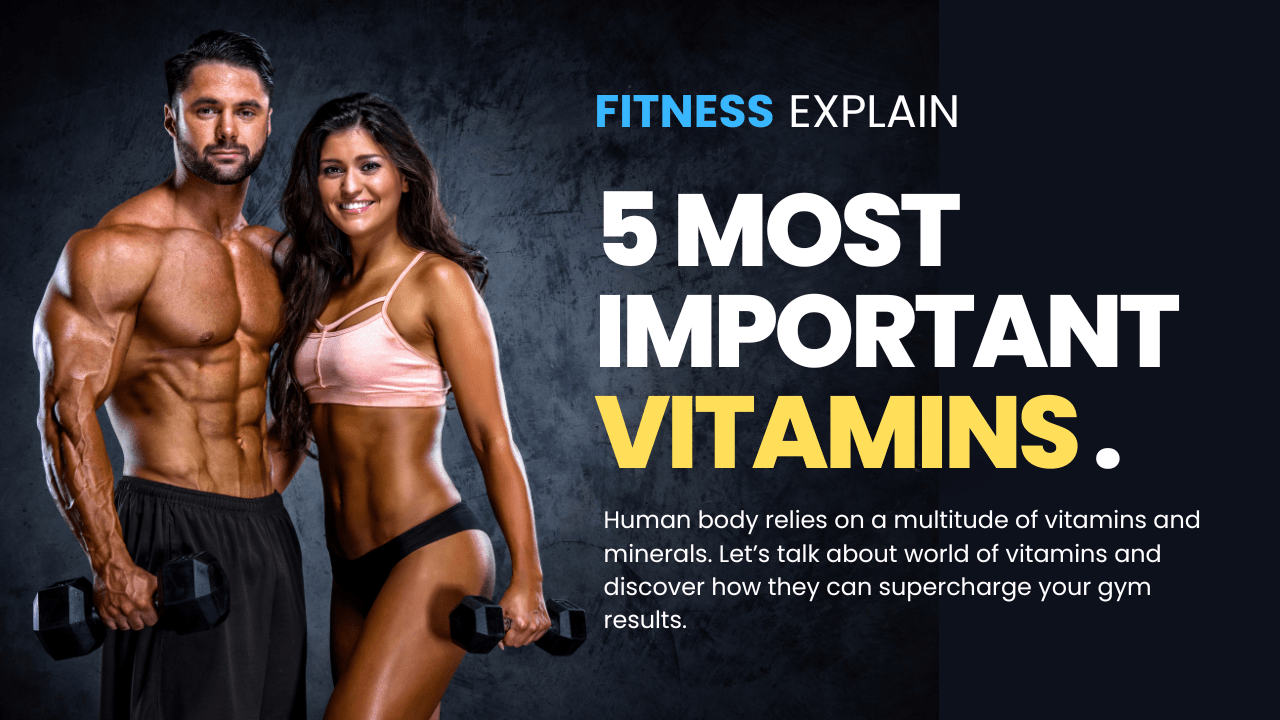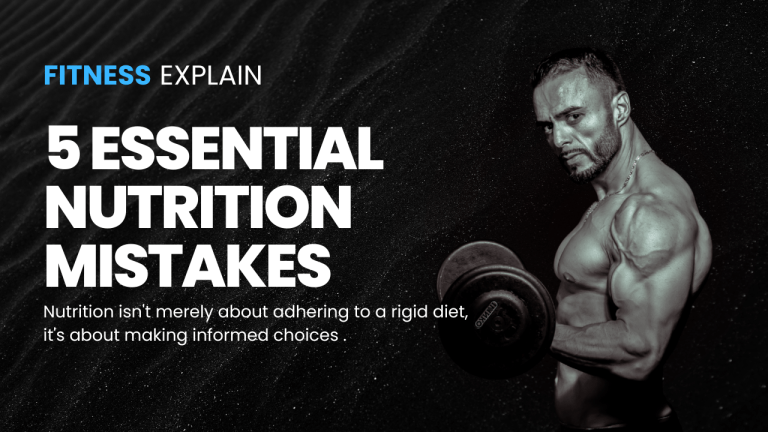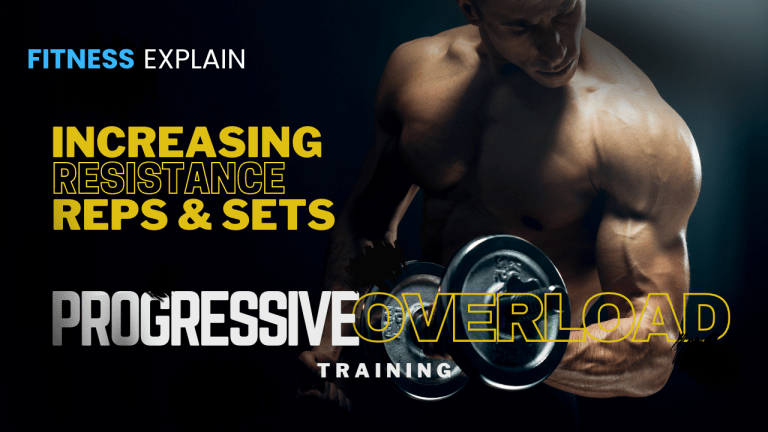When you’re driving home after an intense workout, it’s important to remember that there’s a lot more going on underneath the surface. Intricate cellular processes are hard at work, contributing to muscle growth and repair. To support these processes effectively, the human body relies on a variety of vitamins and minerals. While a well-balanced diet can provide many of these essential nutrients, individuals who are dedicated to weightlifting and exercise may experience specific deficiencies that hinder their muscle growth and recovery. In this article, let’s explore the world of vitamins and uncover how they can boost your gym results.
Read Now: 5 Essential Nutrition Mistakes Newbies Must Avoid
Here's what we'll be covering in this article
1. Vitamin D: The Sunshine Vitamin
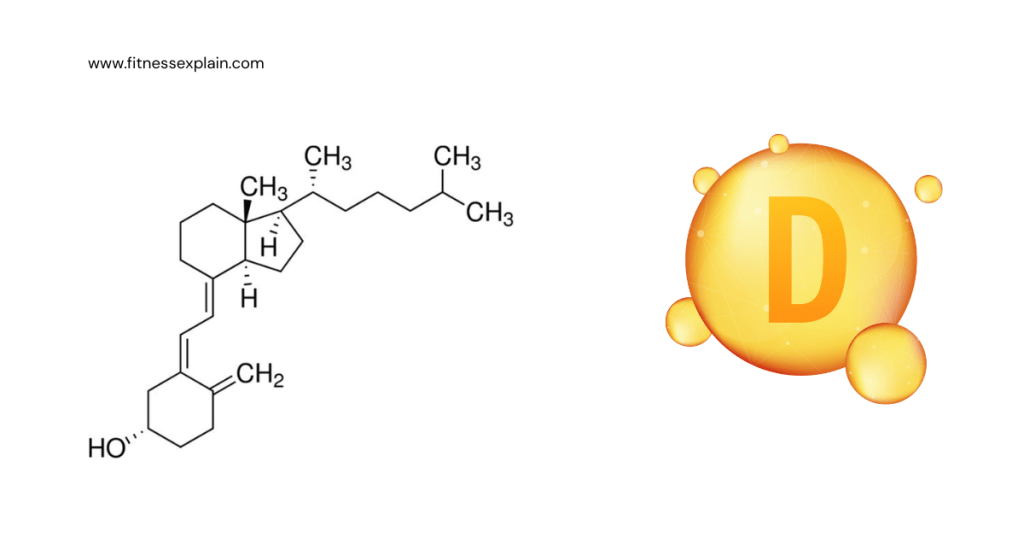
Vitamin D, also known as the “sunshine vitamin,” plays a crucial role in muscle growth and recovery. Unlike other vitamins, your body needs direct exposure to sunlight to kickstart its production. While most people are aware of its importance in preventing diseases, it also has a significant impact on muscle development.
Vitamin D takes center stage in the production of testosterone, the hormone that fuels muscle growth. Some research studies have shown that vitamin D supplementation can lead to a significant increase in explosive power when combined with strength-training routines. It also positively influences protein synthesis, mainly because of its effect on testosterone production. In fact, a study involving men with low testosterone levels found that vitamin D supplementation resulted in a remarkable 20% increase in free testosterone levels.
Additionally, the collaboration between vitamin D, calcium, and magnesium is crucial for bone health, further supporting overall musculoskeletal well-being.
2. Vitamin C: The Versatile Antioxidant
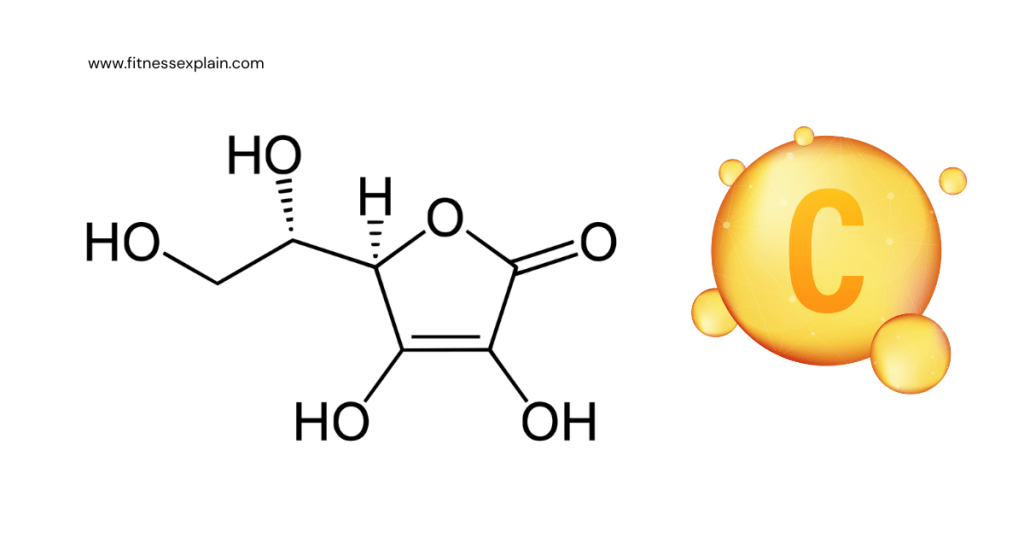
Vitamin C, often highlighted for its immune-boosting properties, plays a vital role in protecting muscle cells from harmful free radicals. Beyond its antioxidant abilities, it actively supports the formation of testosterone and other anabolic hormones.
But the benefits of vitamin C don’t stop there. This vitamin is a key player in collagen formation, which is essential for connective tissue. Strengthening collagen helps joints become more resilient against heavy weight resistance, reducing the risk of injury.
A study conducted at the University of North Carolina even discovered that vitamin C supplementation before and after exercise led to reduced muscle soreness and prevented the oxidation of glutathione, a potent antioxidant. This is particularly relevant considering the discomfort of delayed-onset muscle soreness (DOMS) after a strenuous workout.
3. Vitamin E: The Cellular Guardian
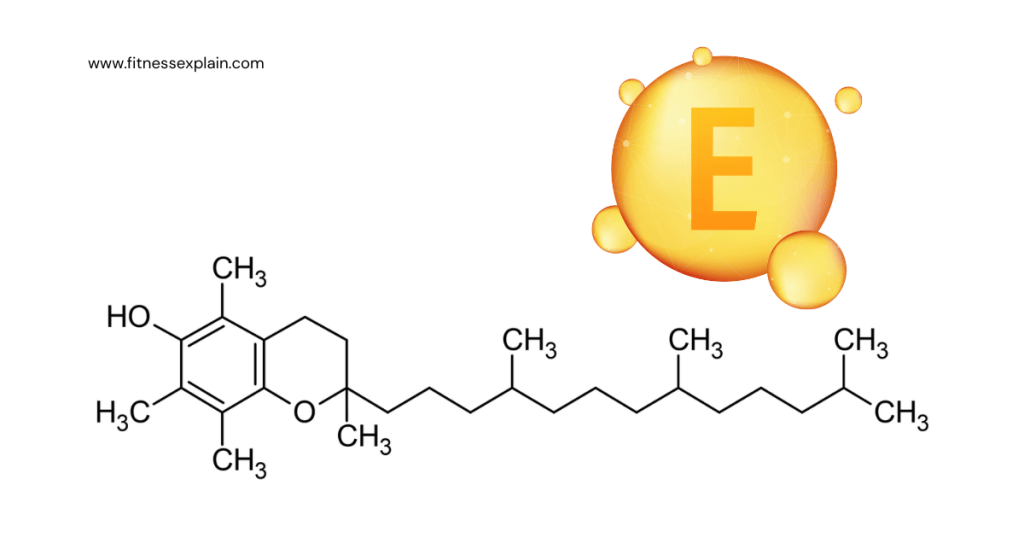
Often associated with skincare, vitamin E’s role goes beyond aesthetics. This powerful antioxidant defends cellular integrity. Intense physical training produces free radicals, harmful by-products of cellular respiration. The accumulation of these free radicals can lead to increased toxicity in the body, which negatively affects performance, muscle growth, recovery, and immune health.
Vitamin E takes on the challenge of combating these free radicals, eliminating them from the body. The result is reduced oxidative stress and decreased muscle damage. Moreover, vitamin E has shown promise in preventing and treating carotid atherosclerosis, a condition characterized by the narrowing of the carotid artery due to oxidative stress. This not only supports muscle growth but also facilitates quicker recovery by improving blood pressure, allowing nutrient-rich blood to reach working muscles more efficiently.
4. B Vitamins: The Protein Metabolism Team (B6, Folate & B12)
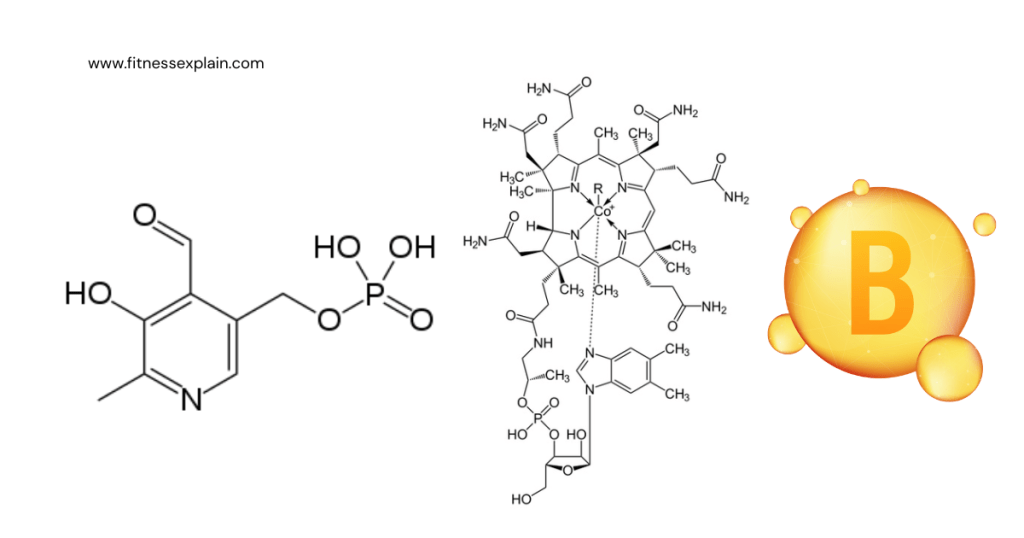
When it comes to muscle growth and recovery, vitamins B6, folate, and B12 form a powerful trio within the B vitamin group. Both vitamins B6 and B12 directly contribute to protein metabolism, and studies have revealed an increased need for vitamin B6 as protein consumption increases. Additionally, vitamin B6 is essential for the absorption of vitamin B12. Together, these B vitamins are essential for producing red blood cells and immune system cells, both of which are critical for muscle growth and repair.
Folic acid (vitamin B9) complements this synergy. When taken together with vitamins B6 and B12, it reduces homocysteine levels, enhances nitric oxide production, and improves endothelial function. The ultimate result is improved blood flow and better nutrient delivery to active muscles.
5. Vitamin A: The Silent Muscle Booster
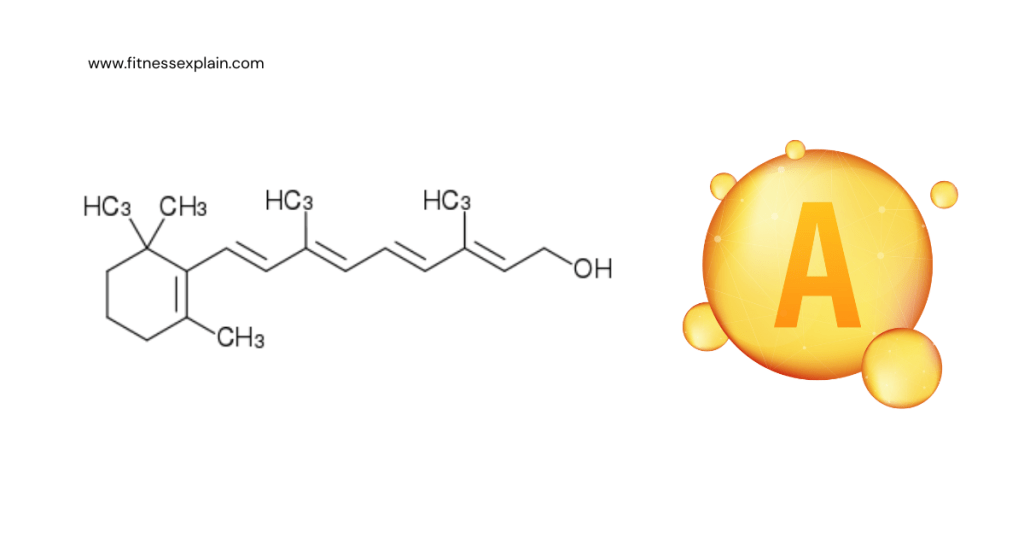
Vitamin A, often overshadowed by its reputation for eye health, silently supports muscle growth and recovery. It plays a pivotal role in protein synthesis, a fundamental process for muscle development. Interestingly, vitamin A levels decrease as protein synthesis increases, highlighting its role in breaking down protein during the muscle repair process.
Moreover, vitamin A directly affects testosterone, the body’s most potent muscle-building hormone. A study involving teenage boys with delayed puberty demonstrated that vitamin A and iron supplementation produced similar maturity compared to those receiving external testosterone. This underscores the significant impact of vitamin A deficiency on testosterone production, regardless of age.
Lastly, vitamin A contributes to enhanced structural strength in muscles by promoting bone development and accelerating the maturation of young cells. This hidden gem among vitamins proves to be a versatile asset for anyone pursuing optimal muscle growth and recovery.
These five vitamins, each with their unique set of benefits, have the power to enhance your muscle growth and recovery efforts. By ensuring an adequate intake of these essential nutrients, you can unlock your body’s full potential and achieve superior results in the gym. So, remember to nourish not only your muscles but also your body with the vitamins it needs to thrive.


